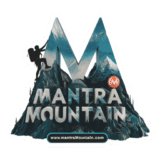## Annapurna Trekking on a Budget: Your Essential Nepal Trekking…
📋 Table of Contents
## Annapurna Trekking on a Budget: Your Essential Nepal Trekking Guide to Affordable Adventures!
Dreaming of soaring Himalayan peaks, ancient villages, and breathtaking landscapes? The Annapurna region of Nepal offers all this and more, often perceived as an exclusive, costly adventure. But what if we told you that **Annapurna trekking** can be surprisingly affordable?
This comprehensive **Nepal trekking guide** will show you how to experience the magic of the Annapurna Himalayas without breaking the bank, armed with the best **budget trekking tips** for an unforgettable journey.
### Why Annapurna is Perfect for Budget Trekkers
Unlike some remote, expedition-style treks, the Annapurna region is renowned for its well-established “teahouse” trekking system. This means:
* **No Camping Gear Needed:** You’ll stay in local guesthouses (teahouses) along the trail, eliminating the need for tents, cooking equipment, and porters to carry them. This significantly reduces your packing list and overall costs.
* **Affordable Accommodation:** Teahouse rooms are basic but comfortable, often costing just a few dollars a night (sometimes even free if you eat your meals there).
* **Local Food:** Delicious, hearty, and inexpensive Nepali meals like Dal Bhat (lentil soup, rice, and curried vegetables) are readily available, keeping your food budget in check.
* **Accessibility:** The region is easily accessible from Pokhara, a popular tourist city, minimizing domestic travel costs.
### Top Affordable Annapurna Treks
Even within the Annapurna region, some treks are more budget-friendly than others, often due to their shorter duration or less demanding logistics.
1. **Poon Hill Trek (3-5 Days):**
* **Highlight:** Famous for its panoramic sunrise views over the Annapurna and Dhaulagiri ranges.
* **Budget-Friendly Because:** It’s shorter, requires less gear, and the teahouses are plentiful and well-priced. A perfect introduction to **Annapurna trekking**.
2. **Mardi Himal Trek (5-7 Days):**
* **Highlight:** A newer, less crowded trail offering stunning close-up views of Machhapuchhre (Fishtail Mountain) and the Annapurna range.
* **Budget-Friendly Because:** It’s still developing, so teahouses are simpler and often cheaper than on more established routes. Less foot traffic can also mean slightly better rates.
3. **Annapurna Base Camp (ABC) Trek (7-12 Days):**
* **Highlight:** Reaching the amphitheater of mountains at the base of Annapurna I is an iconic **Nepal trekking** experience.
* **Budget-Friendly Because:** While longer, the teahouse system still applies, making it far more affordable than expeditions requiring full camping support. Manage your pace, and your daily costs remain low.
### Your Ultimate Nepal Trekking Guide: Budget Trekking Tips
Ready to lace up your boots? Here’s how to ensure your **Annapurna trekking** adventure is kind to your wallet:
1. **Travel in the Shoulder Seasons:**
* **Peak Season (Autumn: Sep-Nov, Spring: Mar-May):** Best weather, but higher prices for flights, guides, and accommodation, plus more crowds.
* **Shoulder Seasons (Early Dec, Late Feb, Early Jun):** Still good weather, fewer trekkers, and often better prices for flights and guides. Monsoon (June-August) and winter (Dec-Feb) are cheapest but come with weather challenges.
2. **Secure Your Permits Locally:**
* You’ll need two permits for **Annapurna trekking**: the Annapurna Conservation Area Project (ACAP) permit and the Trekkers’ Information Management System (TIMS) card.
* Purchase these yourself in Kathmandu or Pokhara (from the Nepal Tourism Board offices). Using an agency to buy them will add a service fee. Factor these fixed costs into your **budget trekking tips**.
3. **Go Independent (or with a Small Group):**
* While hiring a guide or porter is highly recommended for safety and supporting the local economy, you can save by not booking an all-inclusive package tour.
* Find a guide in Pokhara and negotiate rates directly. Sharing a guide and/or porter with other trekkers significantly cuts costs.
4. **Eat Like a Local (Dal Bhat Power!):**
* Stick to Nepali staples like Dal Bhat. It’s nutritious, delicious, and often comes with free refills (allowing you to fill up for the trail ahead).
* Avoid Western meals, packaged snacks, and sodas, which are much pricier. The higher you go, the more expensive goods become due to transport costs.
5. **Purify Your Own Water:**
* Bottled water gets expensive and creates plastic waste. Carry a reusable water bottle and use purification tablets, a SteriPen, or a water filter. Many teahouses also offer boiled water for a small fee. This is one of the most effective **budget trekking tips**.
6. **Pack Smart (Rent, Don’t Buy):**
* Don’t buy expensive gear you’ll only use once. Kathmandu and Pokhara have countless shops where you can rent down jackets, sleeping bags, trekking poles, and other equipment for very reasonable daily rates.
* Borrow from friends if possible!
7. **Limit Connectivity:**
* Wi-Fi and charging points at teahouses often come with a fee. Embrace the digital detox! Charge your power bank in bigger towns before heading out.
8. **Negotiate (Respectfully):**
* For gear rental or guide services, it’s acceptable to negotiate, especially outside of peak season. Do so politely and with a smile.
### Your Affordable Annapurna Adventure Awaits!
Experiencing the majesty of the Annapurna region doesn’t have to be a lavish affair. With smart planning, a focus on local experiences, and these practical **budget trekking tips**, you can embark on an incredible **Annapurna trekking** journey that is rich in adventure and light on your wallet.
So, are you ready to discover the affordable side of the Himalayas? Your unforgettable **Nepal trekking guide** to adventure starts now!
—
**Ready to plan your budget-friendly Annapurna trek? Share your questions or your own favorite budget tips in the comments below!**
